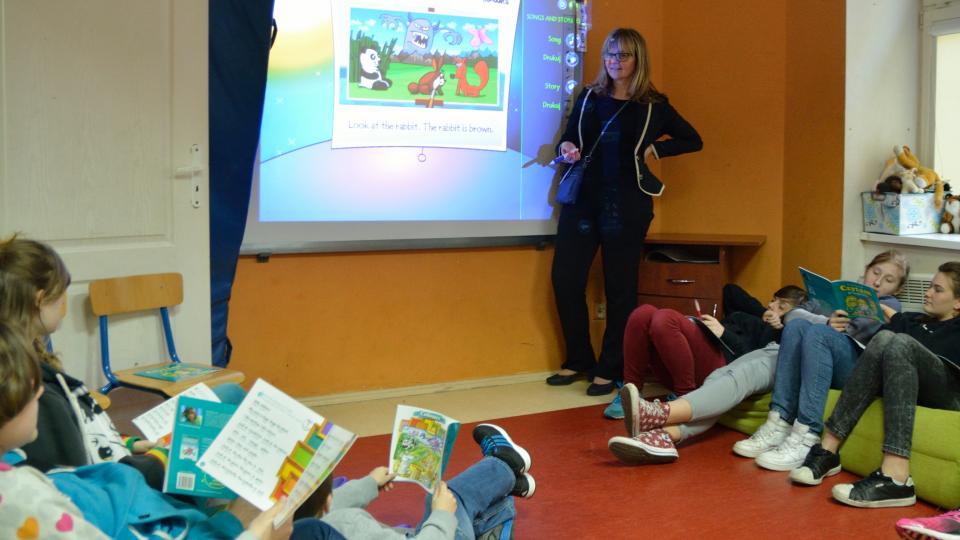Breaking Down Barriers

Before the collapse of the Soviet Union in the early 1990s, Russian was the predominant second language offered in Polish schools, leaving tens of thousands of Polish emigrants without the English skills they needed.
That has changed over the last 25 years. English proficiency drastically improved after the government reformed its education system in 1991. The country overhauled its teaching curriculum and materials and introduced English as the primary foreign language. As of 2013, Poland ranks 8th in the world in English proficiency.
However, one segment of the population isn’t reaping the benefits of the improved curriculum. Thousands of students in poor rural villages attend schools that don’t have the adequate resources or well trained personnel to properly teach English, putting them at a disadvantage in today’s global economy and labor market, says Anna Wieczorek, a Rotary Club of Warszawa City member and author of Poland’s English curriculum for grades 1-3.
“The budgets of state schools in rural areas are limited compared to those in the cities and private schools,” Wieczorek says. “Teachers in these schools are often underpaid and undertrained. Consequently, the level of teaching English is far from meeting the appropriate standards.”
Added to that, she says, their students face social exclusion. “They lack the self-confidence and communication skills that students in the city, who have access to modern technology, might have,” she says. “The inability to learn English -- let alone acquire an appropriate education -- early on in their lives makes it difficult for them to evolve and develop further in life.”
Many of the students come from homes where unemployment and alcoholism are common, according to a report by the CASE Foundation, prepared for the Warsaw Delegation of the European Commission. Many turn their attention to the streets and crime instead of education, the report says.

